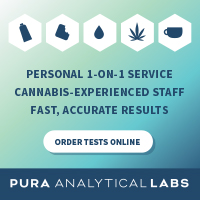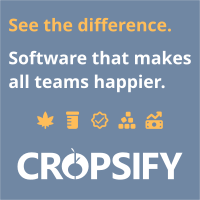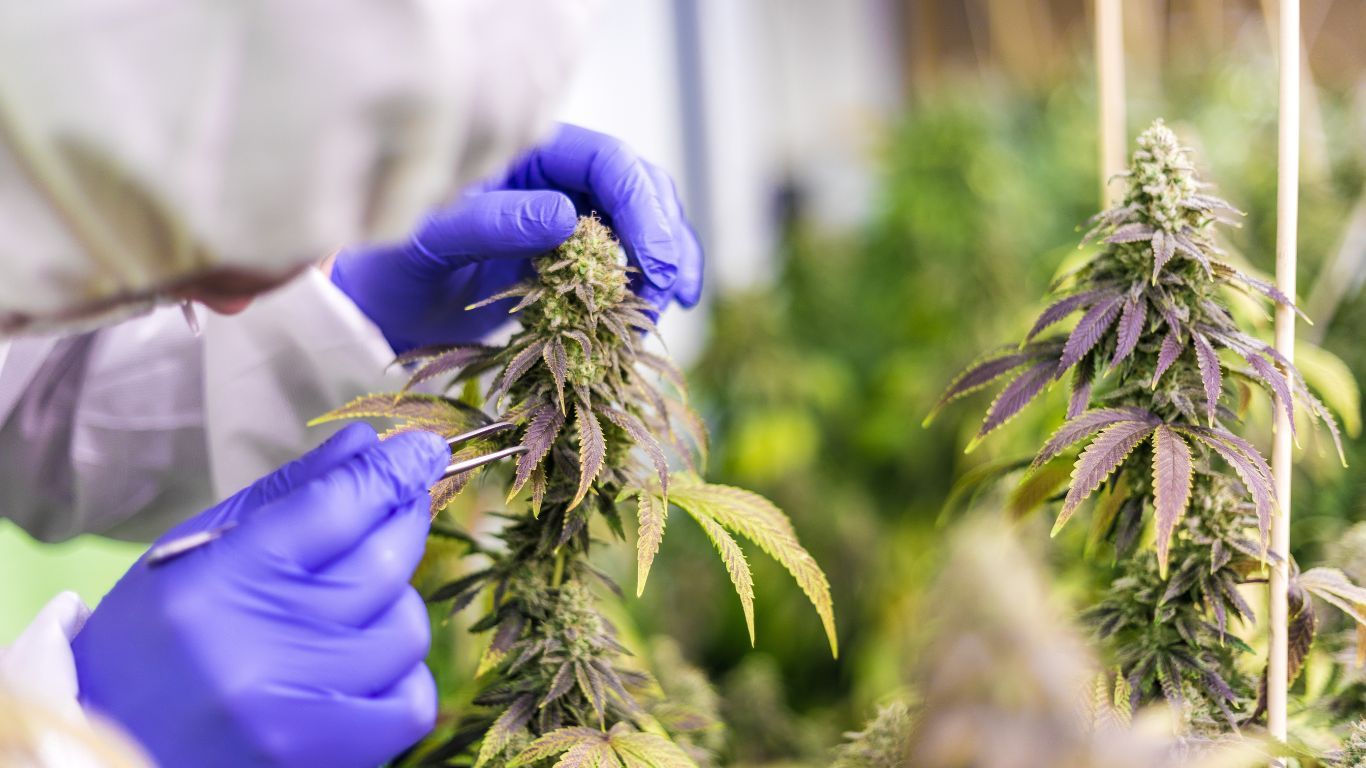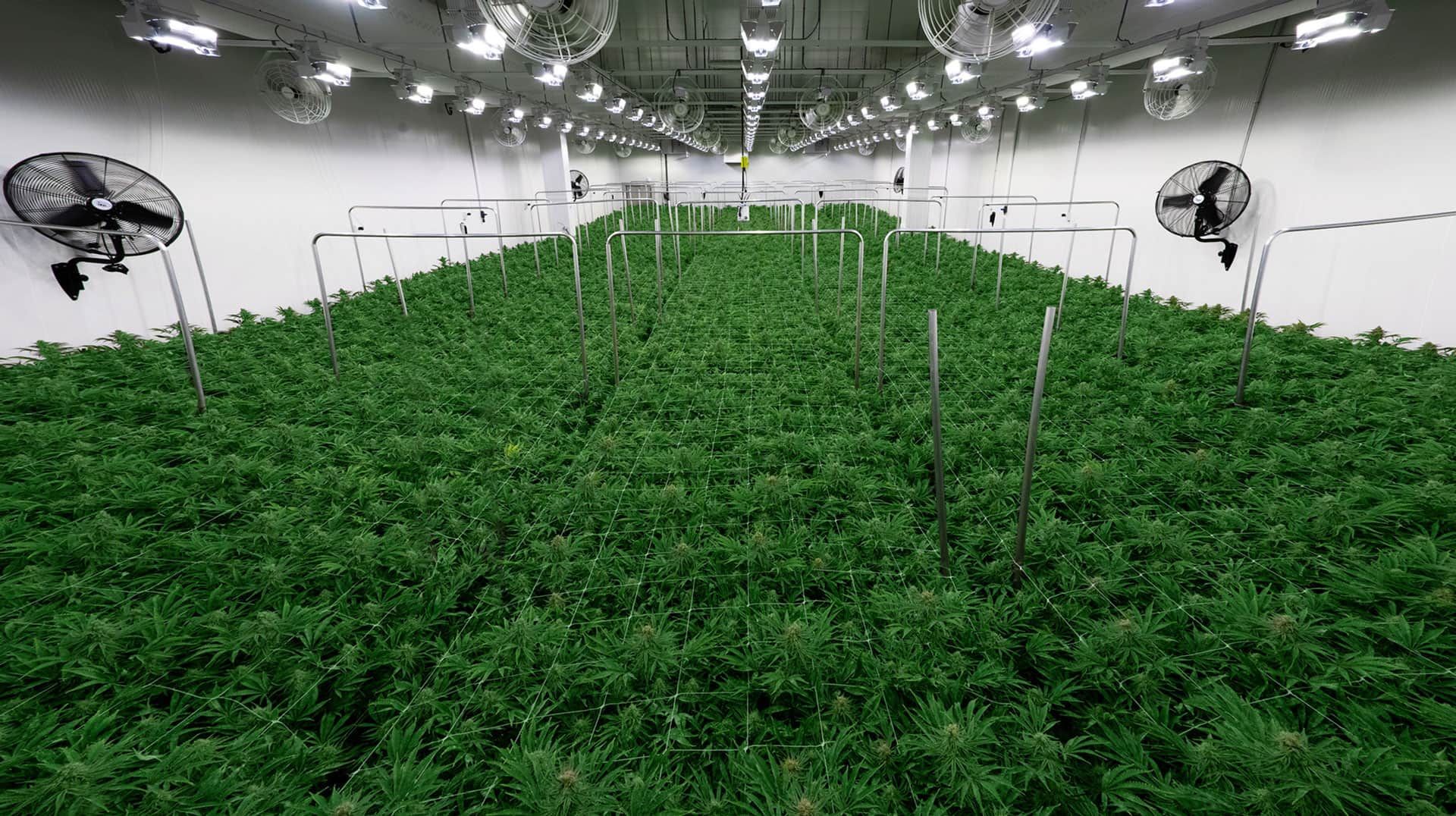
What is Cannabis Farmgate?
What is cannabis farmgate? Is it a type of store, consumer experience, business concept or a combination? In practice, it may be all these things. In its simplest definition, cannabis farmgate refers to a retail store where cannabis products are sold directly to customers by a licensed producer. While the term is not explicitly mentioned in the Cannabis Act, Section 69 notes that possession, sale, and distribution of cannabis is only permitted if authorized by provincial statute.
Federal legislation identifies standard and micro-processing licence classes which may produce cannabis products for recreational sale. For a federal producer to sell cannabis within a provincial retail system, both a processing licence as well as a sales amendment that authorizes the specific classes of cannabis intended for sale is required. Beyond these criteria any policies and practices concerning cannabis farmgate stores are within the ambit of each province’s own legislative framework for cannabis sales, with each province taking a different approach. Currently, Ontario is the only province with a program in place for cannabis farmgate retail; however, Saskatchewan’s retail framework also permits cannabis farmgate.
Recently, the B.C. government has announced that it too is developing a cannabis farmgate program for 2022 which may also include nursery sales of clones and seeds in addition to other cannabis products. While Alberta does permit regular cannabis retail stores to operate adjacent to production facilities, the provincial government has made no decisions about true farmgate sales to consumers. A key aspect that most provincial cannabis farmgate schemes are missing is a mechanism for the farmgate operations to access cannabis products directly from the adjacent production facility. In most provinces that allow on-site cannabis retail stores, products must first pass through the provincial wholesaler either physically or on paper; a process that takes additional time and makes it difficult for store operators to secure their own products for sale to consumers, despite the product being manufactured a short distance away.
At this stage, cannabis farmgate retail is more of an evolving business model than a regulatory reality. Judging from applicable regulations, reports, and conversations with government representatives, licensed producers, advocates, applicants and others, direct sales from the production site is the defining element of any farmgate operation. Essentially, a Canadian cannabis farmgate outlet is a provincially authorized retail store that is owned by a federally licensed producer, which sells its cannabis products and accessories next to its production facility. In Saskatchewan and Ontario, farmgate stores are also allowed to sell cannabis products made by other producers.
According to current provincial regulations, a farmgate store can be adjacent to any qualified federal licensee. However, zoning bylaws and building codes often pose barriers to farmgate sales; this is particularly the case in provinces that allow municipalities to designate retail store zoning, limits on the number of stores, or to impose other restrictions. Production facilities may be in areas specifically zoned for industrial and commercial use. While retail sales in these locations may not be permitted, bylaw variances may be used to address this issue.
On the other hand, there may be good reasons for restricting on-site sales, especially where public health and public safety may be a legitimate concern. For example, facilities that use butane or other organic solvents to produce cannabis oils or extracts may carry a risk of explosion. In addition, industrially zoned areas may not readily accommodate sales traffic due to their distance from residential and retail commercial areas and a lack of appropriate infrastructure. Several instances have also been reported of municipalities taking a wary or uninformed stance toward cannabis commercialization. In some cases it was reported that municipal staff declined to issue zoning permits until they saw a Health Canada processing licence, not realizing that Health Canada requires a production facility to be fully built before the facility is granted a licence. Education, negotiation, and patience may be needed to obtain the appropriate permits, variances, and conditions to permit a cannabis farmgate store to open.
Some see farmgate sales as a new consumer option offering the opportunity to buy direct from the producer while engaging in a curated farm-to-table experience, often in a rural setting with outdoor, greenhouse and/or indoor growing. Farmgate, as so envisioned, is an experience as well as a store, offering facility tours, nursery sales, educational sessions, and hospitality. Farmgate is touted as a future local employer and tourist attraction, comparable to wineries. Others characterize cannabis farmgate stores as like retail outlets appended to breweries and distilleries. Product sales, tours, educational workshops and other activities are described as part of the mix regardless of location and scale. Even without further legislative changes, sampling of cannabis products could be provided by leveraging a little-known federal research licence. Since farmgate operators, applicants, and commentators have evoked vineyard tours and winery tastings, visitors may want to try cannabis products and should be able to do so with a bit of planning. By registering with a licensed producer to participate in a sensory and palatability study under a federal research licence, site visitors can sample beverages, edibles, and combustible products such as vape pens and dried flower pre-rolls. The research licence would require licensed producers to plan for potential risks, who would thus be required to have a framework for ethical considerations, take steps to mitigate the risk of adverse reactions and conduct a participant qualifying process. The process would include registering participants and ensuring that informed consent documents are signed prior to offering visitors an on-site tasting experience. Some licensed producers have already obtained this licence and could arrange tours, thereby taking care of logistics and transportation to ensure visitors’ safety.
In the balance of this article, the progress of cannabis farmgate is reviewed, as well as the regulatory landscape with a look at what’s on the horizon in British Columbia, Alberta, Saskatchewan, and Ontario.
British Columbia
British Columbia’s cannabis retail framework allows for both government and private sector stores; however, apart from government statements that a farmgate policy is in the works, few details have been released. Observers express optimism, as British Columbia’s Minister of Public Safety and Solicitor General Mike Farnworth has stated that new rules will be developed by 2022 to enable direct farmgate sales to consumers. Under the current federal framework in conjunction with the provincial legislation, only licensed producers (standard and micros) could potentially open a cannabis farmgate store, depending on municipal zoning requirements. At present, only traditional cannabis retail stores are permitted, selling products sourced through B.C.’s Liquor Distribution Branch. Current rules encumber a licensed producer’s ability to open a farmgate store. As set out in the B.C. Government’s Cannabis Retail Store Terms and Conditions, licensed producers are prohibited from operating owned, or even affiliated, stores “…where there is an association, connection or financial interest between an applicant and a federally licensed producer”. The justification for this restriction is the concern is that a licensed producer-owned or affiliated retailer would exclusively sell its parent producer’s products. Ironically, that is the raison d’être for a cannabis farmgate store in the first place. With word that consultation on B.C.’s farmgate policy will be held during spring and summer this year, much needed changes cannot come soon enough.
Based on public statements, it appears that B.C.’s farmgate policy will be targeted towards small-scale producers. However, the definition of ‘small-scale’ has yet to be determined and it remains unclear whether the new policy would also include ‘mid-sized’ or ‘large’ producers, who are also not yet defined. The new policy would permit federal cannabis licensees in B.C. to sell their products from stores located at their production site to improve product availability and create a more inclusive market for rural communities and smaller producers. A ‘direct delivery’ sales program, also planned for 2022, would presumably facilitate farmgate sales by allowing farmgate and other cannabis retailers to directly purchase finished cannabis products from licensed producers. An indigenous shelf space program, planned for later this year, could also boost farmgate offerings while benefiting indigenous licensed producers by providing dedicated shelf space in farmgate stores. Both announced programs seem like a natural fit with the new farmgate policy. As if to suggest as much, in September 2020, the B.C. government entered into an agreement with the Williams Lake First Nation to support their interest in operating cannabis retail stores, as well as a cannabis production site to sell its own products.
Despite the B.C. government’s commitment to smaller cannabis businesses, advocates continue to express concern over the difficulty experienced by legacy and other small growers in legally commercializing their enterprises. The sentiment often expressed is that these growers, allegedly thousands in number, are responsible for putting B.C. on the map as a key destination for high-quality cannabis but are not benefitting from legalization.
B.C. and other provinces have already seen positive economic impacts for the beverage alcohol and tourism sectors from on-site sales involving tasting rooms, tours and hospitality in the wine, craft-brewing, and distilling industries. Establishing similar programs and updating regulations to assist small-scale, and hopefully other cannabis producers would be a welcome step to further the sustainability of B.C.’s deep-rooted cannabis industry.
Alberta
While farmgate is not yet a reality in Alberta, the province appears to be on a journey towards operating farmgate retail stores according to reports and emerging industry visions. Alberta Gaming, Liquor and Cannabis (AGLC) allows cannabis retail stores to operate at licensed cannabis production facilities without any ownership restrictions, both in terms of the percentage of ownership by licensed producers and the number of stores owned by a single company in the province. However, the cannabis retail store must be established and operate as a separate entity and, as per the AGLC’s policy manual, access is not permitted from any area of the premises to another business.
So far, there is no provision for direct-to-consumer sales unmediated by the AGLC. Purchase of cannabis products for resale must be made through the AGLC, functioning as both the provincial regulator and wholesaler. Cannabis products must first be physically shipped from the producer to an AGLC warehouse before the same products can be ordered, purchased, shipped back and stocked as inventory by the farmgate retail store. In practice, this situation is identical for any authorized cannabis retail store so other than the store being on site there is no difference. These farmgate stores may carry other products on the AGLC’s listing with no special consideration given to an outlet located at the production site. While this may be a viable approach for regular retail stores and for standard licensed processers that ship large quantities of cannabis to government warehouses, it is prohibitive for micro-producers according to Kieley Beaudry, CEO of Parkland Flower. Significant barriers include high insurance costs and the expense of setting up a separate corporate entity and retail store with its own employees, a standalone retail structure and separate security arrangements; all which Beaudry contends are unnecessarily duplicative, as the facility already has measures in place to comply with Health Canada’s even more stringent requirements. Perhaps most concerning is the process requiring a licensed producer to ship out and then attempt to recoup its own products. “I’m not guaranteed being able to buy back my own products,” said Beaudry, “I may send 100 cases into the AGLC and only get back 3 of the 50 cases I ordered back. I can’t run a farmgate business that way”.
Alberta Treasury Board and Finance is said to be looking at direct farmgate sales to consumers. An October 2020 statement on behalf of the agency acknowledged that it’s studying other provinces’ policies, but the agency did not specify a target date or next steps. The expectations are that such a policy would need to examine current business requirements and make it easier to operate a farmgate store by addressing the current restrictions that impede direct delivery of cannabis products to consumers. The local cannabis industry would like to include complementary activities such as site tours, plant-trimming classes, and lab-testing demonstrations as permitted activities under the province’s framework. As president of the Alberta Cannabis Micro License Association, Beaudry wants to see sales of clones and seedlings at farmer’s markets as well as at farmgate stores, presently not permitted by the AGLC. Age-gating “appears to be the hang-up” noted Beaudry, although the sale of cider, beer and wine is permitted at many farmer’s markets without similar age restrictions. Advocates hope that relaxed sales rules include special event licensing, which local brewers and distillers have already achieved through persistent lobbying.
Saskatchewan
Saskatchewan has perhaps the most open and transparent rules to establish farmgate stores in Canada. To date, the province has not prohibited any farmgate store from operating. There are no ownership restrictions and licensed producers of all classes may operate as many stores as they like. Saskatchewan does not distinguish between different types of cannabis retail outlets, and all may operate full online stores and offer delivery to their customers. Unlike other provinces that have a government-run wholesaler, in Saskatchewan licensed producers and authorized cannabis retailers maintain direct relationships, with no provincial product listing process. In line with these practices, farmgate retail operations are also supplied directly; in such cases, the licensed producer owning the farmgate store does not need to sell and re-purchase their own products from a provincial wholesaler. Without a mandated public wholesaler that legally must possess the product before it’s sale by a retail store, cannabis products can be moved directly from a producer’s federal inventory to their provincial inventory without any third-party involvement other than reporting both sides of the transaction to the Saskatchewan Gaming and Liquor Authority (SGLA). The business thereby maintains complete control over both their pricing and timing of transfers.
The federal excise duty is remitted by the farmgate retailer with product movement between inventories along with the PST/RST when the product is sold. Licensees must also register their farmgate operations with the province. Federally licensed cultivators, processors and nurseries must hold applicable Canada Revenue Agency and Health Canada licences, enabling them to sell cannabis products to all holders of provincial cannabis retail permits once registered with the SLGA. The farmgate store can operate as the same corporate entity as the federally licensed part of the business and could be required to if operating as an integrated store, an option available in communities of up to 2,500 residents. However, if operating as a standalone store, as required in larger communities, a farmgate operation must establish a separate corporate entity.
In Saskatchewan a standalone retail stores at a production facility may share a vestibule with the facility. In such situations, access via the vestibule would be the only means of entering the retail area from the licensed part of the production site. Alternatively, the retail store may be in another building on the site near the production facility. Security requirements for farmgate stores are the same as for regular cannabis retail stores, whether standalone or integrated. All cannabis retail stores must be fully enclosed within a secured structure and meet guidelines for room construction and materials. All stores must meet the same prescribed standards for perimeter security against unauthorized access, record-keeping, site surveillance, and monitoring. Cannabis edibles and samples are exempt from secured storage requirements and may remain in retail areas after operating hours.
Unlike most provinces, Saskatchewan allows alternative storage of cannabis in farmgate and other retail stores. A fully secured storage room is not required; retailers may use a commercial safe, gun locker or similar device (subject to certain specifications) located in permitted premises to hold cannabis inventory. In addition, smaller storage space is allowed as there may be less need for some stores to keep large amounts of cannabis inventory on-site. According to industry intelligence, direct dealings between licensed producers and retail operators promotes rapid product movement, enabling store inventory to turn over 3-4 times each month. With the ease of moving cannabis products direct from the production facility to retail store, inventory can be replenished even more frequently within a farmgate operation. This feature would be especially attractive to a company focusing on freshness as part of their brand and sales proposition.
In Saskatchewan, a wide range of cannabis products are eligible for sale in all retail stores, including plants, seeds, edibles, oils, extracts, topicals, as well as dried and fresh cannabis. As with other cannabis retailers, farmgate stores may also sell cannabis accessories to be used in cannabis consumption as well as ancillary items directly related to cannabis, including cannabis cookbooks, clothing, and home-grow equipment. Farmgate stores are not restricted to selling the production facility’s cannabis products but may sell any products from any registered supplier.
While Saskatchewan’s regime permits farmgate retail stores there appears to have been no conscious intention (or need) to articulate a separate farmgate policy. A government official noted that entities entering the retail market typically seek locations optimized for retail sale rather than cannabis production, which is often zoned for light industrial uses. The government has also received feedback from federal licensees considering a farmgate store that having customers on site may require them to amend their security plans. Some producers likely did not consider the potential for a farmgate store when they first opened their doors.
Ontario
Lately, Ontario has been in the news since the Alcohol and Gaming Commission of Ontario (AGCO) issued 6 Retail Operator Licenses (ROL) to licensed producers. At the time of writing, the AGCO has received 16 ROL applications and 10 Retail Store Authorization (RSA) applications for farmgate stores. In addition to the ROLs issued, 2 RSAs have been approved, with one cannabis farmgate store opened and the second store to follow in July 2021. Opening a farmgate store largely depends on a licensed producer’s ability to get their store locations ready to go, including having a supply agreement with the Ontario Cannabis Store (OCS), Ontario’s wholesale distributor.
To open a cannabis retail store in Ontario, applicants require a ROL as well as a Retail Store Authorization (RSA), and must be managed by a person possessing a Retail Manager Licence (RML). As with all Ontario cannabis retail stores, a farmgate store must also be located within an appropriately zoned area and pass a 15-day public notice period. During this period, residents may raise concerns, but municipalities cannot otherwise control or prevent the store from opening. While farmgate applications are processed like any other retail cannabis application, these applications are added to a separate RSA issuance queue since the licensed producers will be selling their own products. Crucially, a process has been developed by the OCS to enable licensed producers to sell directly to consumers through the on-site store. The OCS offers a workaround to the current shipping and ordering procedure for licensed producers and retail stores. The process allows licensed producers with a farmgate store to supply their store by designating a section of the store’s secured storage area as part of the OCS warehouse. A paper transaction will confirm the store’s order with the OCS for retail sale, replacing the need to ship cannabis between the farmgate site and the OCS.
In addition to its new ordering process, the OCS is reported to be developing a “flow through” catalogue to function as an ordering mechanism that would allow retailers to develop direct relationships with licensed producers in order to curate their own product offerings and appeal to a targeted clientele. Catalogue specifics are not yet available (the launch is planned for summer 2021) but this option will likely be available to all authorized retailers. It seems that the program could encourage farmgate site visits by helping retailers further differentiate their product offerings from that of their competition.
A recent report from cannabis news source, StratCann, indicates that several of the farmgate ROL applicants have paused or rescinded their applications for a variety of reasons including a reconsideration of their business model, the COVID-19 pandemic, and a decision not to compete with nearby retailers that already sell their products. Perhaps the farmgate model is not for everyone. Notwithstanding apparent growing pains, the Ontario version of farmgate should lead to more diverse consumer experiences. For example, Dykstra Greenhouses has installed a glass wall at their farmgate store location to allow visitors to observe cannabis plants at different stages of growth and built their site on the Niagara wine route to capture part of the wine tourism market. Meanwhile, the ability to speak directly with their customers is cited by Medz Cannabis as a key reason for setting up their farmgate store.
Similarly, Thrive Cannabis, a mid-sized licensed producer that opened their farmgate store on April 21, 2021, maintains that their operation provides further transparency about their products and who they are as a business. The company sprang from the Bluhm family founder’s original farm to embrace the vision of creating their own premium craft cannabis products. According to Robyn Rabinovich, VP of Strategic Initiatives at Thrive Cannabis, farmgate for them is about sharing their unique commitment to quality with its customers. “Every detail of our business, from the people we hire to our growing and production practices is based on producing the highest quality product.” She emphasized. “We never cut corners.” Indeed, the company’s CTO, Tyson Cramer, has 15 years of experience growing cannabis in California’s renowned Emerald Triangle. The company plans to showcase other producers’ products as well as its own. Thrive’s Bubba Nicholson, VP of Business Development and Ethos adds, “High tides raise all boats. We look forward to having what some would consider competitors’ product on our shelves. We love the idea of showcasing brands who live by the same commitment to quality and ethos as ourselves.” Fostering community in the cannabis space as well as hiring locally will be an integral part of the company’s farmgate experience.
While not all the details have been fully sorted out, licensed producers are still working to understand how flexible the AGCO and OCS will be when it comes to ordering timelines which can impact inventory management. With proximity to the production site there is the prospect of smaller store inventories, faster product turnover and less need to tie up cash in store inventory. These are early days for Ontario farmgate operators, but there are hopeful signs for the future.
Where do we go from here?
The recent phenomenon of cannabis farmgate retail has sparked an outsized interest across Canada, and much speculation about how (and how quickly) it will develop. While the concept and early reality has borrowed from the winery business model, it seems likely that the many licensed producers situated in suburban areas could pursue a craft brewery model befitting their more urbanized surroundings. There are plenty of successful examples to draw from among craft breweries, which have also undergone explosive growth.
Much of the farmgate conversation coincides with a growing interest in craft cannabis products and moves by some producers to differentiate their products from competitors. Recently, this has become apparent with buyouts of smaller cannabis companies by larger licensed producers, seemingly to diversify their brand and product offerings. Farmgate stores appear destined to play a growing role in these branding efforts, especially within the context of restrictive federal advertising and promotion regulations. Opening a cannabis farmgate store at a production facility offers creative scope to associate a farm-to-table experience with a company’s cannabis products and way of doing business, as Thrive Cannabis’ strategy exemplifies. B.C.’s efforts to develop a tailored farmgate program has raised expectations in the cannabis industry that could spur efforts in other parts of Canada to lobby provincial governments for policies to support a true farmgate business model. How quickly this happens may depend on the progress of industry consolidation, the growth of the cannabis micro sector, and consumer interest.
Written by Denis Gertler, Senior Regulatory Advisor, CannDelta Inc.
Edited by David Wasserman, Associate Consultant, CannDelta Inc.
Feature image: Sugar Cane Cannabis
















